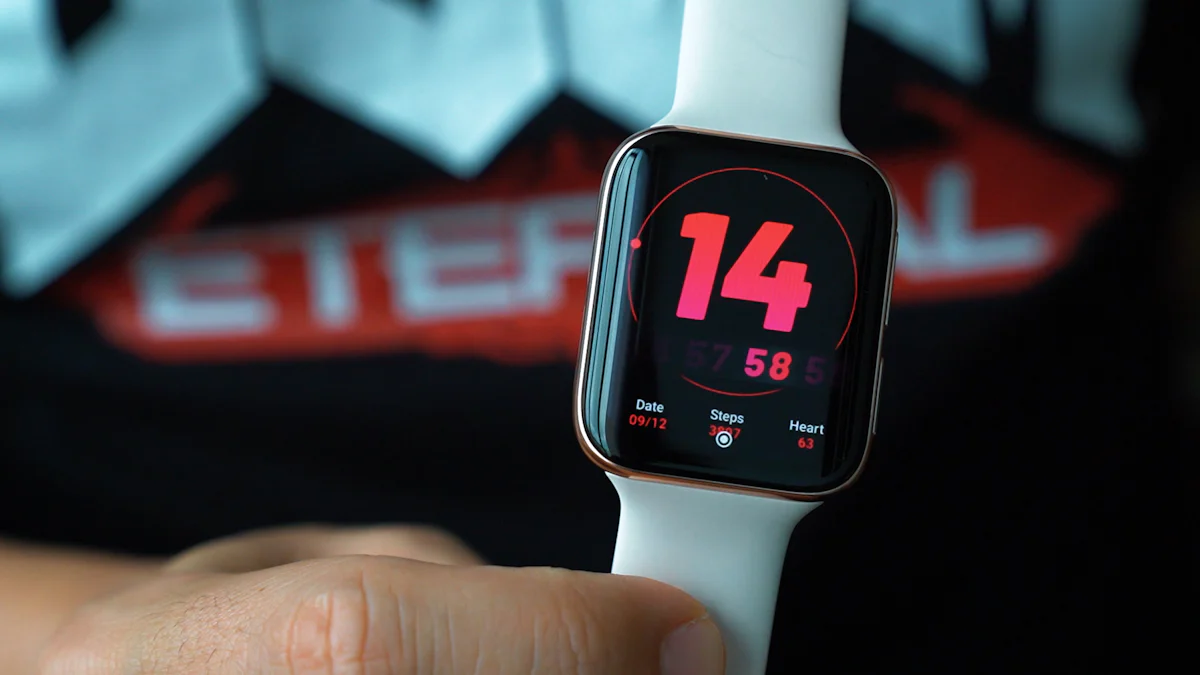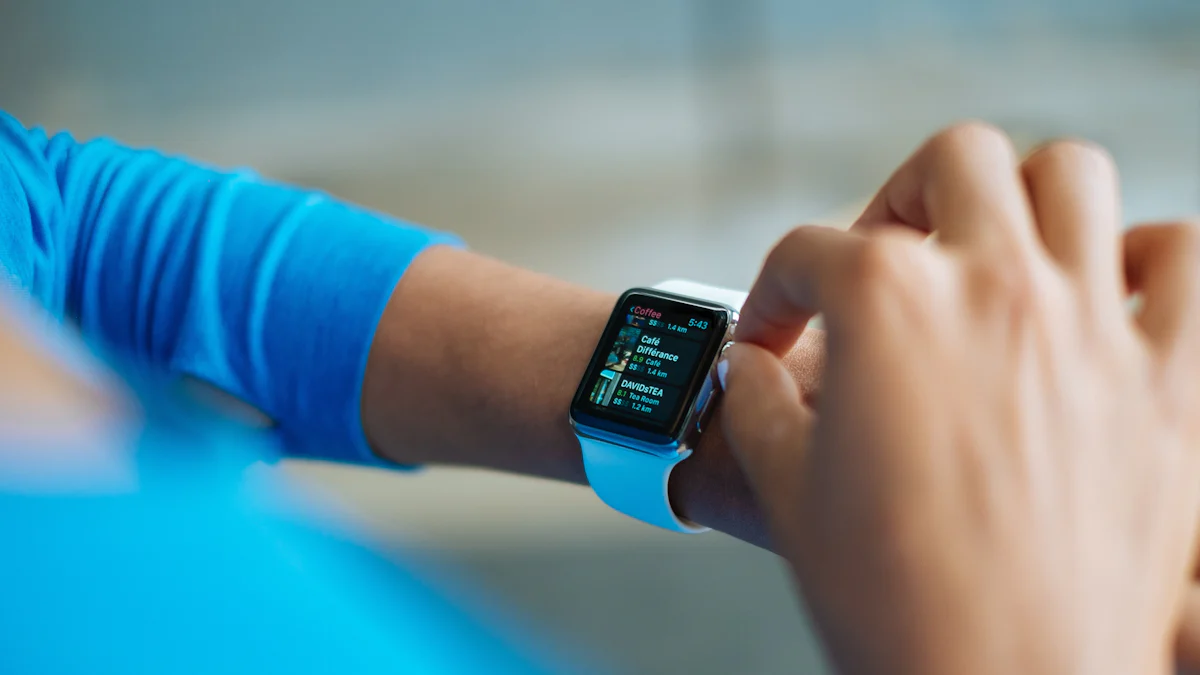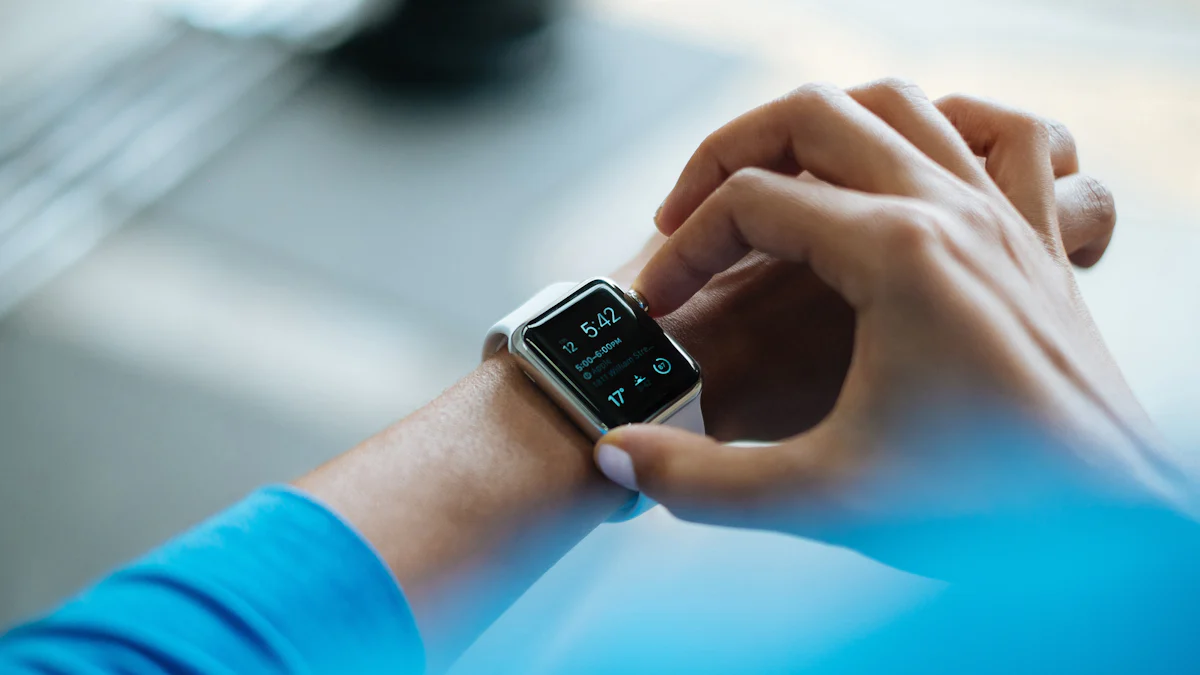Exploring the Latest Trends in Wearable AI Technology

Wearable AI technology transforms how people interact with the world. Devices like smartwatches and fitness trackers enhance daily life. The global wearable AI market was valued at USD 27,067.75 million in 2022 and is projected to reach USD 221,351.41 million by 2031. Staying updated with trends ensures you benefit from advancements. Aroused.AI exemplifies innovation in this field. Understanding ai to human interaction in wearables helps you make informed choices. Embrace these trends to improve personal and professional experiences.
Overview of Wearable AI Technology
Definition and Scope
What is Wearable AI?
Wearable AI refers to devices that integrate artificial intelligence into wearable technology. These devices include smartwatches, fitness trackers, and smart glasses. Wearable AI devices use sensors and algorithms to gather and analyze data. This technology helps users monitor health, fitness, and lifestyle.
Key Components and Features
Wearable AI devices contain several key components. Sensors collect data on movement, heart rate, and other metrics. Algorithms process this data to provide insights. Connectivity features allow devices to sync with smartphones and other gadgets. User interfaces display information in an accessible format.
Historical Context
Evolution of Wearable Technology
Wearable technology has evolved significantly over time. In 2014, the launch of the first Apple Watch and Google Glass marked a turning point. These devices introduced new possibilities for personal technology. The past decade saw an explosion of generative AI in wearables. Natural language processing tools now enable immediate interaction with users.
Milestones in AI Integration
AI integration in wearables has reached several milestones. Machine learning algorithms have transformed personalized health monitoring. Healthcare app developers use AI for early disease detection. This enhances healthcare capabilities for early diagnosis. Wearables now support research by correlating biometrics with environmental factors. This promises a big impact on health research with AI capabilities.
Current Trends in Wearable AI

Health and Fitness Applications
Smartwatches and Fitness Trackers
Smartwatches and fitness trackers have revolutionized personal health management. These devices collect data on physical activity, heart rate, and sleep patterns. Users receive real-time feedback to improve their health and fitness. Samsung's new wearables use AI to analyze biometric data. Customized health assessments and recommendations enhance user experience. Machine learning algorithms provide insights into daily habits and lifestyle choices.
AI in Health Monitoring
AI technology enhances health monitoring capabilities. Devices track vital signs and detect irregularities. Early detection of potential health issues becomes possible. Wearable AI devices offer curated health tips. Users receive alerts for concerning health changes. Healthcare app developers integrate AI for disease prediction. This technology transforms healthcare into a more responsive industry.
Fashion and Lifestyle Innovations
Smart Clothing and Accessories
Smart clothing integrates AI with textile technology. Garments feature embedded sensors and actuators. Users experience enhanced comfort and functionality. Fashion becomes more interactive and personalized. Smart accessories adapt to user preferences. Wearable AI devices offer style and convenience.
AI-Driven Personalization
AI-driven personalization tailors experiences to individual needs. Devices learn user behavior and preferences. Personalized recommendations improve lifestyle choices. Users enjoy a seamless interaction with technology. AI enhances decision-making processes in daily life. Real-time data and statistics provide valuable insights.
Workplace and Productivity Enhancements
Wearable AI in Professional Settings
Wearable AI devices enhance workplace efficiency. Employees benefit from improved communication and collaboration. Devices monitor productivity and provide feedback. AI technology supports task management and organization. Professional settings become more dynamic and efficient.
Enhancing Efficiency and Collaboration
AI technology fosters collaboration among team members. Devices facilitate real-time communication and information sharing. Users experience increased productivity and engagement. Wearable AI devices streamline workflows and processes. Enhanced efficiency leads to better outcomes in professional environments.
Introducing Aroused.AI
Overview of Aroused.AI
Unique Features and Capabilities
Aroused.AI enriches storytelling with NSFW content, offering a unique blend of creativity and personalization. The platform allows users to develop digital artwork based on their preferred themes.
How Aroused.AI Stands Out in the Market
The focus on NSFW storytelling content caters to a niche market, enhancing user engagement. Aroused.AI's ability to create diverse characters appeals to a wide audience. The platform's unique voice technology adds a personal touch to AI interactions.
Applications and Use Cases
Integration with Existing Wearable Devices
Aroused.AI seamlessly integrates with existing wearable devices. The platform enhances the capabilities of smartwatches, fitness trackers, and other wearables. Users benefit from real-time feedback and personalized interactions. The integration allows for a more immersive experience with wearable technology. Aroused.AI's adaptability ensures compatibility with a range of devices. The platform's features enhance the functionality of modern wearables.
Benefits for Users and Industries
Aroused.AI offers significant benefits for both users and industries. Users enjoy a personalized experience tailored to their preferences. The platform's AI-driven insights improve decision-making and lifestyle choices. Industries benefit from increased user engagement and satisfaction. Aroused.AI's innovative approach attracts a diverse audience, expanding market reach. The platform's capabilities support creative projects and personal enjoyment. Aroused.AI represents a new frontier in wearable AI technology.
Future Prospects of Wearable AI Technology

Emerging Technologies and Innovations
AI and Machine Learning Advancements
AI and machine learning continue to revolutionize wearable technology. Devices now learn from user behavior and adapt over time. This advancement enhances user experience and provides personalized insights. Samsung's wearables exemplify this trend by offering customized health assessments. The integration of AI in wearables leads to smarter, more intuitive devices.
Potential for New Applications
Wearable AI technology opens doors to new applications. Smart clothing and accessories gain popularity due to their interactive features. Users enjoy garments with embedded sensors that offer comfort and functionality. The potential for AI in virtual and augmented reality grows rapidly. Wearables like VR headsets and smart glasses transform entertainment and education. The future holds exciting possibilities for wearable AI technology.
Challenges and Considerations
Privacy and Security Concerns
Privacy and security remain critical concerns in wearable AI technology. Devices collect vast amounts of personal data from users. Protecting this information becomes a top priority for developers. Users must stay informed about data privacy policies and practices. Companies work to enhance security measures to safeguard user data. Awareness and vigilance help mitigate privacy risks in wearable technology.
Ethical Implications and Regulations
Ethical implications arise as wearable AI technology advances. The use of AI in health monitoring raises questions about data ownership. Users must understand who controls their personal information. Regulations evolve to address these ethical concerns. Governments and organizations establish guidelines to protect consumers. Staying informed about regulations ensures responsible use of wearable AI devices.
AI to Human Interaction in Wearable Technology
Enhancing User Experience
Personalized Interactions
Wearable technology offers personalized interactions that cater to individual preferences. Devices like smartwatches and fitness trackers use AI to analyze user data. This analysis provides tailored recommendations for health and lifestyle improvements. Samsung has integrated AI in wearables to deliver customized health assessments. Users receive real-time feedback based on biometric data. Personalized interactions enhance user engagement and satisfaction.
Adaptive Learning and Feedback
Adaptive learning in wearable technology allows devices to evolve with user behavior. AI algorithms process data from sensors to understand patterns and habits. Devices adjust their responses to provide relevant insights and suggestions. Users benefit from continuous improvement in device performance. Wearables offer feedback that adapts to changing needs and preferences. This dynamic interaction enhances the overall user experience.
Bridging the Gap Between AI and Human Needs
Understanding User Behavior
AI in wearable technology focuses on understanding user behavior. Devices collect data on physical activity, sleep patterns, and other metrics. Machine learning algorithms analyze this information to identify trends and anomalies. Researchers highlight the role of advanced algorithms in personalized health monitoring. Understanding user behavior enables devices to offer meaningful interventions. Wearables become valuable tools for maintaining health and wellness.
Creating Seamless Experiences
Seamless experiences in wearable technology result from effective AI to human interaction. Devices integrate AI applications to simplify daily tasks and routines. Users enjoy convenience and efficiency through intuitive interfaces. Wearables like pins, pendants, and glasses incorporate AI for ease of use. Donna Kmetz notes the rise of healthcare AI in everyday routines. Seamless experiences enhance the appeal and functionality of wearable devices.
Wearable AI technology holds immense significance in today's world. Devices like smartwatches and fitness trackers enhance daily life with real-time data and personalized insights. AI wearables have the potential to reinvigorate industries such as fashion and healthcare. Embrace these trends to stay ahead of technological advancements. Explore new possibilities that wearable AI offers for personal and professional growth. The future of wearable AI promises exciting developments. AI technology enhances the functionality and performance of wearable accessories. Stay informed and make the most of these innovations.
See Also
Crafting AI-Driven Female Art Masterpieces
Top NSFW AI Art Tools of 2024: Aroused.ai's Detailed Analysis
Aroused.ai's Top Picks for NSFW AI Image Tools in 2024
